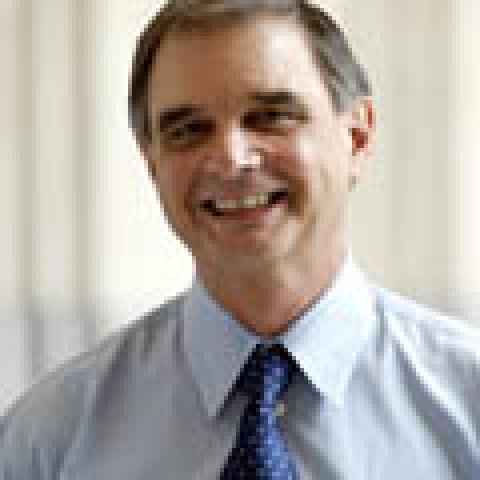Lawrence C Dodd
Fellow
Professional Affiliation
Manning J. Dauer Eminent Scholar in Political Science, University of Florida
Expert Bio
Coming of age in America during the 1960s, I was part of a generation of graduate students drawn to political science in the hope that studying politics would show us how best to change it. Leading scholars argued that American institutions were outmoded and impervious to reform. Congress, in particular, was too encumbered by seniority, poor party discipline, organizational fragmentation, and noncompetitive elections to ever change. James MacGregor Burns and Samuel Huntington proposed relying on presidential power. We young idealists preferred to upend the system and replace it with a more responsive one.Thirty-five years later, the study of change and a focus on Congress still preoccupy me – but with a difference. I did pursue my ‘radical' notions, writing a dissertation designed to discover whether parliamentary government was preferable to ours. Concluding other systems had their own problems, I turned to study the ills of American government as a Congressional Fellow. I arrived in Washington just as the "Watergate" election of 1974 swept a new generation of liberal Democrats into Congress, sparking momentous upheaval. Major obstacles to change crumbled and a new, party-centric and more responsive congressional order began to emerge. I was disbelieving. How could an institution seemingly impervious to reform give way to institutional restructuring, and what did this mean for strategies of change? After observing the reforms of the mid-1970s, my concern was to understand the dynamic resilience of Congress. Returning the next fall to university life, my research interests ranged from European parliaments to congressional-bureaucratic relations to state legislative change to Nicaragua's ‘electoral revolution' of 1990. But the puzzle of congressional change remained ever-present.To address this puzzle, I immersed myself in the literature on Congress and in social science theories of human behavior, ‘imagining' what combining them could tell me. The result was four perspectives on change, developed in phases across a quarter-century of work: (1) a rational choice approach (1977-86), arguing that the pursuit of power by legislators and parties generates cyclical swings between a fragmented, immobilized Congress and a more centralized and authoritative one; (2) a sociological interpretation (1979-89), emphasizing tensions and citizen support for change that emerge when Congress fails to respond to societal problems; (3) a social learning argument (1986-94), stressing the role innovative ideas play in ameliorative change; and (4) an organizational-theory approach (1994-2002) focusing on how Congress fosters such innovation. My goal now is to prepare a book-length manuscript detailing these perspectives, assessing their contemporary applicability and underscoring their implications. It will argue that the processes generating liberal Democratic reforms in the 1970s also account for recent and equally unexpected successes of Republican conservatives. The resilience of Congress owes not to one party or ideology but to deeper processes of social change and political regeneration. It will conclude that resilience can best be nurtured not by reforms that punish Congress for short-term immobilism, upending it, but through changes and reforms that enhance its capacity for learning, innovation, and regeneration.
Education
B.A. (1968) summa cum laude, Midwestern State University (Texas); Ph.D. (1972) University of Minnesota
Subjects
U.S. Congress,U.S. Elections,U.S. Government,Congress,U.S. National Politics
Experience
- Manning J. Dauer Eminent Scholar in Political Science, University of Florida, 1995-present
- Professor of Political Science and Director, Center for the Study of American Politics, University of Colorado-Boulder, 1986-95
- Professor of Political Science, Indiana University-Bloomington, 1980-86
- Assistant and Associate Professor of Government, University of Texas-Austin, 1972-1980
Expertise
Congressional politics; American politics; theories of political change
Wilson Center Project
"ReEnvisioning Congress: Theoretical Perspectives on Congressional Change"
Project Summary
This project highlights the dynamic qualities of the U.S. Congress. Day-by-day, Congress can appear incapable of policy responsiveness and organizational change. This view dominates public perceptions. Yet, across time, Congress is vibrant and resilient, illustrated by the liberal Democratic reforms of the mid-1970s and the Republican Revolution of 1994. Such periods result from historical processes that foster institutional regeneration. These processes include cyclical shifts in its governing structure; social transformations that produce new policy pressures; the learning of new governing perspectives; and innovative experimentation. In re-envisioning Congress—recognizing its regenerative capacities—we can more readily appreciate and enhance them, fostering responsiveness and change.
Major Publications
- "Making Sense Out of Our Exceptional Senate," U.S. Senate Exceptionalism (Ohio State University Press, 2002)
- "ReEnvisioning Congress: Theoretical Perspectives on Congressional Change," Congress Reconsidered, 7th Edition (CQ Press, 2001)
- "Political Learning and Political Change: Understanding Political Development Across Time," The Dynamics of American Politics (Westview Press, 1994)
